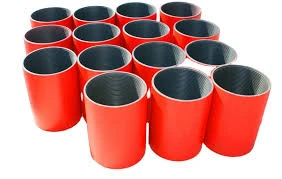- Afrikaans
- Albanian
- Amharic
- Arabic
- Armenian
- Azerbaijani
- Basque
- Belarusian
- Bengali
- Bosnian
- Bulgarian
- Catalan
- Cebuano
- Corsican
- Croatian
- Czech
- Danish
- Dutch
- English
- Esperanto
- Estonian
- Finnish
- French
- Frisian
- Galician
- Georgian
- German
- Greek
- Gujarati
- Haitian Creole
- hausa
- hawaiian
- Hebrew
- Hindi
- Miao
- Hungarian
- Icelandic
- igbo
- Indonesian
- irish
- Italian
- Japanese
- Javanese
- Kannada
- kazakh
- Khmer
- Rwandese
- Korean
- Kurdish
- Kyrgyz
- Lao
- Latin
- Latvian
- Lithuanian
- Luxembourgish
- Macedonian
- Malgashi
- Malay
- Malayalam
- Maltese
- Maori
- Marathi
- Mongolian
- Myanmar
- Nepali
- Norwegian
- Norwegian
- Occitan
- Pashto
- Persian
- Polish
- Portuguese
- Punjabi
- Romanian
- Russian
- Samoan
- Scottish Gaelic
- Serbian
- Sesotho
- Shona
- Sindhi
- Sinhala
- Slovak
- Slovenian
- Somali
- Spanish
- Sundanese
- Swahili
- Swedish
- Tagalog
- Tajik
- Tamil
- Tatar
- Telugu
- Thai
- Turkish
- Turkmen
- Ukrainian
- Urdu
- Uighur
- Uzbek
- Vietnamese
- Welsh
- Bantu
- Yiddish
- Yoruba
- Zulu
stainless steel pipe coupling
Understanding Stainless Steel Pipe Couplings A Comprehensive Guide
Stainless steel pipe couplings are essential components in various industrial and construction applications, serving as connectors between two pipes. They provide a secure, leak-proof connection that is crucial for maintaining the integrity of piping systems. This article will delve into the characteristics, benefits, and applications of stainless steel pipe couplings, exploring why they are the preferred choice in many situations.
What is a Stainless Steel Pipe Coupling?
A pipe coupling is a short piece of pipe that connects two longer lengths of pipe. It can be threaded, welded, or flanged to ensure a robust connection. Stainless steel pipe couplings are particularly valued for their excellent resistance to corrosion, high temperatures, and durability. They are available in various sizes and configurations, making them adaptable to numerous piping systems.
Characteristics of Stainless Steel
Stainless steel is an alloy consisting primarily of iron, with chromium added to prevent rusting and corrosion. This material possesses a range of advantageous properties, including
1. Corrosion Resistance This is perhaps the most significant benefit of stainless steel. It withstands a wide variety of environmental conditions, making it ideal for both indoor and outdoor applications.
2. High Strength and Durability Stainless steel is known for its robustness. It can bear heavy loads and resist mechanical stress, ensuring a reliable pipe connection over time.
3. Temperature Resistance Stainless steel couplings can endure extreme temperatures, which is crucial in industries that deal with heat, such as petrochemicals and energy.
4. Hygienic Properties Because stainless steel is non-porous and easily cleaned, it is the preferred choice in sanitary applications, such as food processing and pharmaceuticals.
Benefits of Using Stainless Steel Pipe Couplings
The benefits of opting for stainless steel couplings over other materials, such as plastic or standard carbon steel, are significant
stainless steel pipe coupling

1. Longevity Stainless steel couplings are designed to last. Their resistance to environmental factors means fewer replacements are necessary over the lifespan of the piping system.
2. Reduced Maintenance Due to their durability and resistance to rust and corrosion, stainless steel couplings require less maintenance than other types. This not only saves time but also reduces costs associated with repairs and replacements.
3. Versatility Stainless steel pipe couplings are compatible with a wide range of media, including water, steam, chemicals, and gases. This versatility makes them suitable for diverse applications.
4. Aesthetic Appeal The polished finish of stainless steel gives pipelines a clean and professional appearance, which can be particularly important in visible installations.
Applications of Stainless Steel Pipe Couplings
Stainless steel pipe couplings are used across numerous sectors, highlighting their versatility
- Construction In construction projects, stainless steel couplings facilitate the connection of plumbing and piping systems, ensuring reliability and effectiveness.
- Energy In the gas and oil industries, stainless steel couplings are used in pipelines that transport crude oil, natural gas, and other substances. Their ability to withstand extreme conditions makes them ideal for these applications.
- Food and Beverage Due to their hygienic properties, stainless steel couplings are extensively used in the food and beverage industry, assisting in everything from brewing processes to dairy production.
- Pharmaceuticals In the pharmaceutical sector, cleanliness is critical. Stainless steel is the material of choice for pipe couplings in systems that transport chemicals and medicinal products.
Conclusion
Stainless steel pipe couplings are integral to maintaining efficient and reliable piping systems across various industries. Their superior qualities, such as corrosion resistance, strength, and hygiene, set them apart from alternative coupling materials. As industries continue to evolve, the demand for durable and efficient coupling solutions will undoubtedly grow, solidifying stainless steel's place as a top choice for connecting pipes effectively and reliably. Whether in construction, energy, food processing, or pharmaceuticals, stainless steel pipe couplings are indispensable components that drive operational success.
-
Tubing Pup Joints: Essential Components for Oil and Gas OperationsNewsJul.10,2025
-
Pup Joints: Essential Components for Reliable Drilling OperationsNewsJul.10,2025
-
Pipe Couplings: Connecting Your World EfficientlyNewsJul.10,2025
-
Mastering Oilfield Operations with Quality Tubing and CasingNewsJul.10,2025
-
High-Quality Casing Couplings for Every NeedNewsJul.10,2025
-
Boost Your Drilling Efficiency with Premium Crossover Tools & Seating NipplesNewsJul.10,2025







